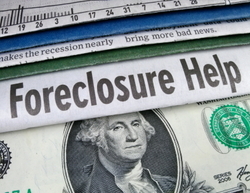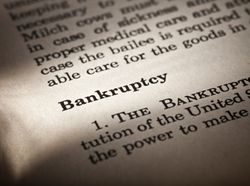There are certain websites that will allow you to print out legal forms, often telling you that doing so can save you thousands on legal fees. While such claims might sound promising, you should know that it is very rare for a pro se individual (that is, someone acting without an attorney) to successfully file bankruptcy.
You’re probably thinking, “Of course a blog written by a Jacksonville Bankruptcy Lawyer would recommend I hire a lawyer.” That’s a fair thought. However, that doesn’t take away from the real difficulties that come with filing for Florida Bankruptcy Lawyer , nor does it relinquish the potential damages that can occur if you do not file correctly.
Further, each person who files for bankruptcy is expected to be familiar with the United States Bankruptcy Code and the Federal Rules of Bankruptcy Procedure. You must also be familiar with the local rules of the court in which your case is filed. Failure to follow these rules can result in dismissal of your case “with prejudice.” For example, if you fail to file a required document on time (or never file it), your creditor(s) might be granted rights to your property without your knowledge. This could result in loss of property, and your time to object will have passed. This is just one of the many negative aspects of not using a qualified attorney.





 If you are one of the many people who walked away from your home before filing for bankruptcy, you might still owe the bank some cash. Generally, when you walk away from your mortgage, the bank will foreclose on your home, sell it, and likely take the loss on that sale (the selling price is usually lower than what you might have owed the bank).
If you are one of the many people who walked away from your home before filing for bankruptcy, you might still owe the bank some cash. Generally, when you walk away from your mortgage, the bank will foreclose on your home, sell it, and likely take the loss on that sale (the selling price is usually lower than what you might have owed the bank).  Yes it is possible for one spouse to file bankruptcy and the other not to file. This may beneficial in some cases, such as when the bulk of the debt is in one spouse’s name only. Be advised, however, that if the non-filing spouse is a co-debtor on a secured debt, the non-filing spouse will still be liable for such debt. Also, the spouse’s income must be disclosed and considered in the bankruptcy. Deciding if both spouses or just one spouse should file bankruptcy involves an in-depth legal analysis and should not be taken lightly. A
Yes it is possible for one spouse to file bankruptcy and the other not to file. This may beneficial in some cases, such as when the bulk of the debt is in one spouse’s name only. Be advised, however, that if the non-filing spouse is a co-debtor on a secured debt, the non-filing spouse will still be liable for such debt. Also, the spouse’s income must be disclosed and considered in the bankruptcy. Deciding if both spouses or just one spouse should file bankruptcy involves an in-depth legal analysis and should not be taken lightly. A